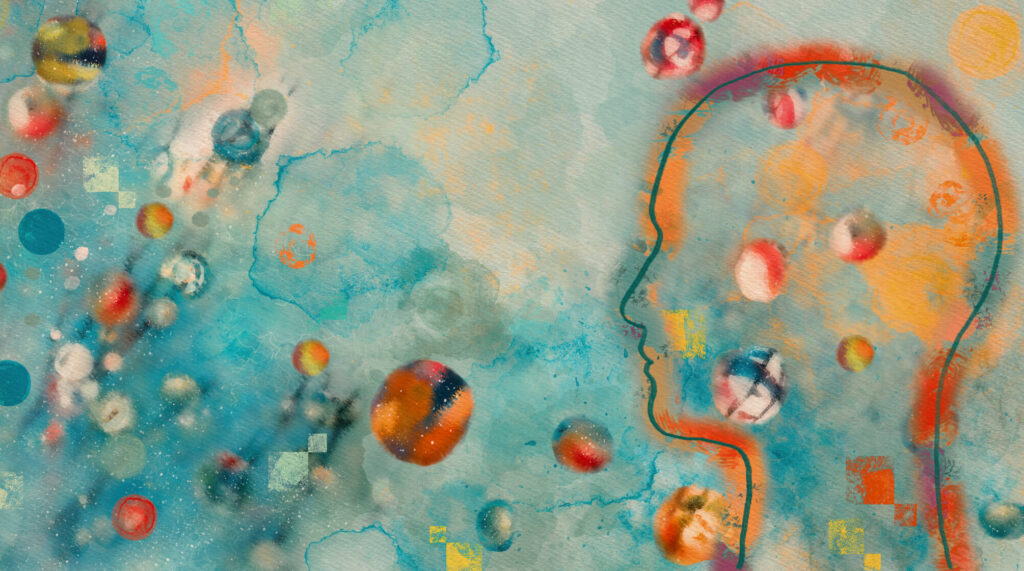Differentiation. What? Many of my friends and family have heard me throw around the word “differentiation,” which sounds more intimidating than it really is. I thought it would be a good idea to break it down so that everyone can understand what I mean when I refer to it, and why trying to bump up on the differentiation scale is of such value for all of us.
Firstly, there are two parts to the concept of differentiation.
For part one, the way I simplify the concept is looking at it this way: differentiation is the ability for one to have an emotional connection with others while maintaining a sense of individuality. Differentiation is the ability to find balance. It is like asking yourself, “how can I honor myself in this situation?” while various other factors and people are involved with different needs and wants, pulling us in all sorts of directions. How much easier is it to “go with the flow,” even if we have a different idea of what we want to do? It is significantly easier! Defining self is difficult because you risk others disagreeing with you, disliking your choice, or even abandoning you.
Many decisions we make as individuals are driven by those on the outside of ourselves, or “other” versus “self.” It can be as simple as this, for example: your friends want to have a get together and meet up at the local burger joint. You recently made the decision to be vegan and would prefer a restaurant with more of a variety of options. You may refrain from suggesting that you all go somewhere else because you fear no one will want to change restaurants, or that they may even make fun of you. In the end you choose to go where your friends want to go. Your decision was based upon “other,” or the force of the togetherness pull, which is strong when one feels like it would feel better to be a part of the group. A more complex example of differentiation of self involves one of . Perhaps as a mother, your son has a disabling habit of gaming, which inhibits him from having a functioning job, transportation, money, etc. Your son is begging you for money, which you know will go towards his habit. Your husband and other children see the pain your son is in when he he loses his apartment to support his habit in various ways (giving him rides, loaning him money, etc). Despite your son’s pleas to let him borrow the car or some cash, you make the decision to not give him money nor let him borrow your car. This is a very difficult choice, as you are not acquiescing to your son in the way that the rest of your family members do, and the family proceeds to tell you that you are being too hard on him. This may make you feel bad, but you are honoring yourself in that you are making a reasonable decision to not enable your son.
Both of these examples show individuals on the differentiation continuum. To begin working towards being higher on the scale, the goal for best functioning is to figure out how to best honor our autonomy while staying in closeness with others. Humans function at their best when they handle balancing the need for being an individual with the need for human connection. The best way to be our most solid self, according to Bowen theory, is by looking at our relationships with our family members; those who played a vital role in our lives while we were learning to socialize and make our first real decisions. It is by placing ourselves in the context of our family environment that we learn about how we define ourselves. Are we expected to always follow dad’s rules, no matter what? Were we encouraged to test the waters and make our own responsible decisions? Reflecting on our upbringing as well as looking at our current place in the family speaks volumes to how we make decisions today.
The second concept of differentiation is being able to separate emotions from reasoning while making decisions. This is easier said than done. When we feel pressure, especially from a group of people or our family who has great influence on us, we make automatic decisions, often driven by emotion. These decisions may be pleasing and convenient to the group but encourage the togetherness force and discourage individuality. For example, it may have quieted the situation and “made everybody happy” if mom just gave son some cash so he could stop bugging everyone in the family about it. However, making decisions to please others or calm down the family system leave little room for individuality and contribute to the togetherness force that maintains unhealthy symptoms within families.
Essentially, differentiation looks like the ability to self-soothe and make a rational decision that best suits self, even in the context of an emotional situation, one in which another is pulling you a certain way and it would be easier to succumb to the togetherness force to preserve harmony. This can be fairly easy when all is calm and working according to plan. The real test may be during the heat of the moment when you are under pressure or feeling stressed and respond quickly and in a way that is not in accordance with what you really need.
When you make decisions thoughtfully and logically, they are the most sound. The less differentiated you are, the more you look towards others for approval, and the more you make decisions to “keep the peace.” The more differentiated you are, the more you act in your own best interest and in the best interest of your relationships. Taking a moment to be thoughtful about your reactions helps you begin to define yourself.
If you wish to experiment with this, I encourage you to slow down and take a look at your reactions on an average day. How thoughtful are you in making your decisions? Did you agree to that spin class out of anxiety of feeling left out or letting a friend down? Did you disregard a hurtful comment from a partner so that you do not get into an argument? The first step towards differentiation is taking responsibility for self, which ultimately means finding a balance. It is important to take initiative in relationships in a way that maintains the connection, just as it is important to be able to operate independently.
However, if this is something that you are currently struggling with due to mental illness within the family or feeling like you might be abandoned if you try to differentiate please call Good Therapy San Diego or visit goodtherapysandiego.com for further help.








